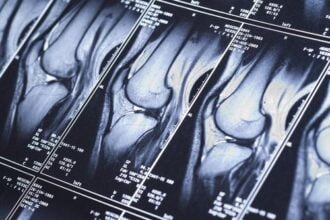If a recent blog post by the CEO of the Cleveland Clinic is representative of how health care executives (and physicians) really think about patients – aka consumers –aka people like you and me…we are all in big trouble. In it Delos Cosgrove, MD, talks about how under health care reform there will be “No more passive patients.”
Here’s my a quote from the post by Delos Cosgrove, MD:
If a recent blog post by the CEO of the Cleveland Clinic is representative of how health care executives (and physicians) really think about patients – aka consumers –aka people like you and me…we are all in big trouble. In it Delos Cosgrove, MD, talks about how under health care reform there will be “No more passive patients.”
Here’s my a quote from the post by Delos Cosgrove, MD:
“For too long, healthcare has been something that was done to you. Now it’s going to be something you do for yourself in partnership with your doctor and care giving team. You’ll need to monitor your food input, get exercise, and avoid tobacco. ”
Let’s examine what’s disturbing about comments like this particularly when made by high-profile leaders like Dr. Cosgrove.
 First, this statement is factually inaccurate. Here’s why. 82% of US adults visit their PCP every year at least once a year (often more) for their health. Think about the trip to the doctor’s office from the patient’s perspective… 1) chances are they have discussed their health problem or concern with family members or friends, 2) they may well have looked up information on their condition to see if it merits a doctor’s visit, 3) they make the appointment, 4) they show up for the appointment and 5) wait in the waiting and exam room thinking about the questions they want to ask their physician.
First, this statement is factually inaccurate. Here’s why. 82% of US adults visit their PCP every year at least once a year (often more) for their health. Think about the trip to the doctor’s office from the patient’s perspective… 1) chances are they have discussed their health problem or concern with family members or friends, 2) they may well have looked up information on their condition to see if it merits a doctor’s visit, 3) they make the appointment, 4) they show up for the appointment and 5) wait in the waiting and exam room thinking about the questions they want to ask their physician.
What about any of this suggests patient passivity?
Second, this statement misrepresents the true nature of the patient passivity of which Dr. Cosgrove speaks. You see patients (aka people) are socialized by physicians beginning in childhood visits with Mom to the pediatrician to assume a passive sick role. We are supposed to be passive! Otherwise the doctors gets irritated and ignores or dismisses what we have to say. While it’s true that patients (even the most empowered among us) ask very few important questions during the typical office exam…the reason isn’t that we are passive. Rather it’s because we don’t want to be too assertive, confrontational, and argumentative or are simply afraid.
Rather that blaming patients for not being more engaged…why don’t doctors try and become more engaging (e.g., patient-centered) to patients?
Third, patient non-adherence is often not the patients fault…but rather the result of poor communications on the clinician’s part. One recent study found that 20% of medication non-adherence is the direct result of poor physician communication with patients. Poor patient communication skills top the list of complaints people have with their doctor. Poor patient communication is also the leading cause of medical errors, non-adherence and poor patient experiences.
Fourth, how exactly are patients going to learn all the skills necessary to “do everything” for themselves? The work of Lorig et al. has shown that simply providing patients with information – the “what” of self care – is not enough to change patient health behavior. Patients also need and want to develop the skills and self efficacy for self care management – the “how” of self care. Right now for example clinicians spend on average
Given the poor patient communication skills of physicians today how exactly are patients supposed to learn how to do it all themselves?
Finally, the Dr. Cosgrove reminds us of the kind of paternalistic, physician-directed thinking and communications which has gotten the health care industry into the mess it’s in.
The following statement says it all:
“If your doctor prescribes a medication, preventive strategy, or course of treatment, you’ll want to follow it.”
What if I don’t want the medication or don’t believe it will help me? Why should I be forced to do something I don’t want to do? Will you drop me as a patient?
What happened to the IHI’s Triple Aims? What about the need to be more patient-centered as called for in Crossing the Quality Chasm and the ACA reform legislation?
I am sorry if I seem to come down hard on Dr. Cosgrove. But my original point remains…too many health care leaders still think and talk like this. While they may “talk the talk”…employees, patients and physicians all see how such leaders “walk the talk.“ And as Cosgorove’s comments suggest we have a long, long way to go.
I would like to extend an invitation to Dr. Cosgrove and the physicians at the Cleveland Clinic to see just how “patient-centered” their communication skills really are by participating in the Adopt One! Challenge. You will not only be able to assess the quality of your team’s patient communication skills but also see how their skills compare to industry best practices.
All physicians are invited to participate.
That’s my opinion…what’s yours?
(patient / shutterstock)







